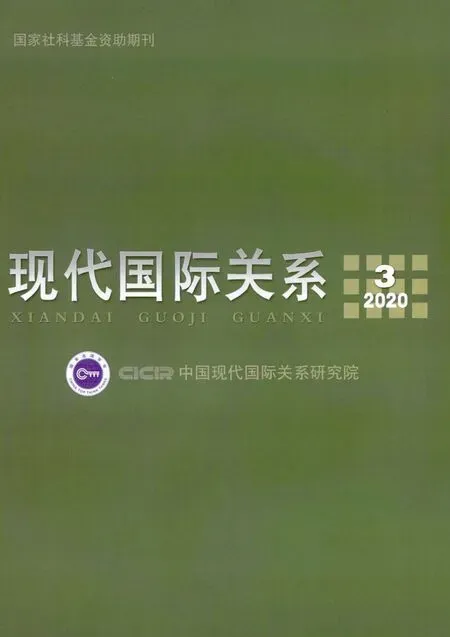Abstracts
SomeKeyQuestionsabouttheDPRKNuclearIssue
LinLimin&ChengYake
Abstract: The DPRK nuclear issue has been a headache in the international community for over two decades.To better understand the issue, we need to address some key questions.Would DPRK fully denuclearize itself? Would the US resort to a military solution? Would DPRK “collapse” under “maximum pressure” from the US and its alliances? How to evaluate the “damage” of the DPRK nuclear development and whether it would lead to proliferation across Northeast Asia? How to evaluate the role of the Six-Party Talks? To what extent would the international community “acquiesce” DPRK’s fait-accompli status as a nuclear power? Different views breed different, sometimes contrasting, solutions.This paper argues that DPRK would not likely denuclearize itself in the foreseeable future, nor would the US resort to a military solution.It would survive and keep its existing nuclear weapons under “maximum pressure” and it would become a fait-accompli nuclear power and the international community has to “acquiesce” this fact.This creates possibilities for the resumption of the Six-Party Talks.
Keywords: DPRK nuclear issue, collapse, acquiesce, maximum pressure, the Six-Party Talks
Japan-UKSecurityCooperation
MengXiaoxu
Abstract: Under the “Indo-Pacific Strategy” and “Global Britain”, Japan and the UK has put much importance on Indo Pacific security.In the area of security cooperation, the two countries have carried out high-level security dialogues.Defense exchanges between the armed forces are close.Both have emphasized the importance to create a “rule-based international order.” There are many motivations for Japan and the UK to strengthen security cooperation, including the adjustment of the US strategy, the active strategic pursuit of Japan and the UK, the improvement of the strategic position of Indo-Pacific region, and the shaping of Indo-Pacific order.It is possible for them to expand security cooperation in new areas, enhance the security cooperation, and strengthen security cooperation among Japan, US and the UK.
Keywords: Indo-Pacific Strategy, Global Britain, great-power competition, security cooperation
China-USFinancialCompetition
ZhangFalin
Abstract: China-US financial competition is likely to intensify and will thus cause crises of the present international financial system and even of the international system in general.Ways of managing the competition and potential crises mainly lie in four aspects: China-US monetary relations in the international monetary system, China-US debt relations, China-US indirect relations in global financial governance architecture and rules, and China-US divergence regarding economic ideologies.Delaying RMB-Dollar strategic confrontation and emphasizing their functional cooperation and complementation are conducive to international monetary stability; China’s debtor position against the US can neither be used as hostage by the US to coerce China, nor used as a weapon of China to attack the US.
Keywords: China-US financial relations, financial competition, crisis management, global financial governance
TheDifferencesofDevelopmentAssistancebetweenChinaandtheUS
MaXue
Abstract: Against the backdrop of US-China competition, there is a growing consensus in the United States that the most important indicator of Sino-US competition is the relative success in developing new markets.By strengthening development assistance, the United States has consolidated its existing international rules and ensured its advantages.China has expanded its access to local markets through development cooperation and reshaped the rules and standards for trade, investment and infrastructure construction.In response to China’s international development policy, the Trump administration has taken measures to strengthen the geo-economic game to adjust the criteria and enhance the attractiveness of the US model, to force the third party to choose one side, and to bring in allies and coordinate strategic investment.This marks a US shift from silent response to systematic balances towards China in the international development assistance.Development assistance has been a national security tool and become the main battlefield of competition between the two countries.
Keywords: development assistance, cooperation, the Belt and Road Initiative, Sino-US competition
RegionalTransformationintheHornofAfricaandChina’sPolicy
ZhangChun
Abstract: The Horn of Africa(HoA)is entering a long-term historical transformation at the individual, state and systematic level now.The younger population causes the replacement of political leaders.The national governance shifts its focus from security to development.The geopolitical changes across the Red Sea is also taken into consideration.The transformation is full of uncertainty and potential.Given its capacity gap between the countries in the region and the traditional cooperation with their partners, China has significant potential to help the HoA to better grasp opportunities and reduce uncertainties to facilitate regional transformation toward sustainable peace and development.China and HoA should consolidate the dominant position of the “development-first” mentality in the region, strength regional and national capacity for sustainable peace and development.
Keywords: Horn of Africa, regional transformation, sustainable development, Sino-African cooperation

